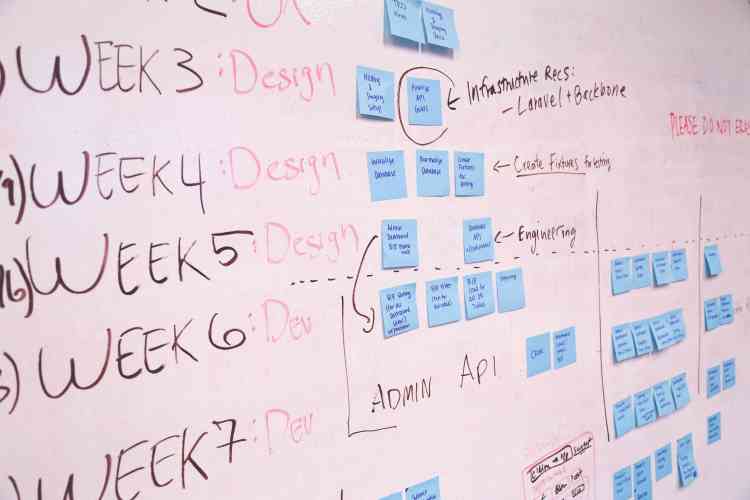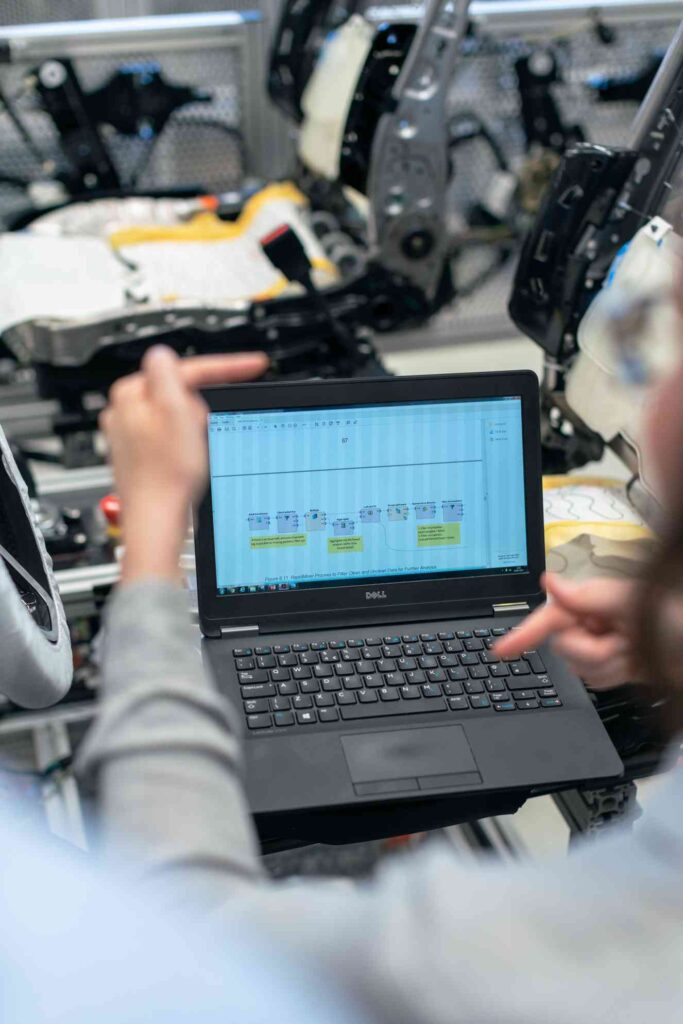Attention to detail is a universal skill that rises above departmental boundaries in the workplace. From Sales to Quality Assurance, every department relies on this critical skill to ensure accuracy, efficiency, and customer satisfaction. Let’s explore how attention to detail contributes to success across various departments in the modern workplace.
1. Sales Department:
In the Sales Department, attention to detail means carefully understanding each customer’s unique preferences and needs.
For instance, a sales representative might take note of a client’s specific product requirements, preferred communication style, and budget constraints. By paying close attention to these details, the salesperson can tailor their offerings and approach, leading to better customer satisfaction and increased sales.
Additionally, attention to detail in tracking customer interactions and feedback helps in building stronger relationships and identifying opportunities for upselling or cross-selling, ultimately contributing to the department’s success and the company’s growth.
2. Projects Department:
In the Projects Department, attention to detail involves meticulously planning and overseeing all aspects of a project to ensure its successful execution.
For example, a project manager pays close attention to project timelines, budgets, and resources. He accurately tracks progress, identifies potential risks, and implements solutions promptly to keep the project on track.
By focusing on every detail, from scheduling tasks to allocating resources efficiently, the project manager ensures that the project is completed within deadlines and budget constraints, meeting client expectations and contributing to the department’s and organization’s overall success.

3. Engineering Department:
In the Engineering Department, attention to detail involves focusing on technical specifications and design requirements.
For example, an engineer pays close attention to the dimensions and materials specified for a product’s components. By ensuring accuracy in these details, the engineer guarantees that the final product meets quality standards and performs as intended.
Attention to detail in engineering ensures that every aspect of the design and implementation process is carefully considered, leading to the development of high-quality products that satisfy customer expectations and contribute to the department’s success.
4. Procurement Department:
In the Procurement Department, attention to detail involves carefully reviewing vendor contracts and terms.
For example, a procurement officer carefully examines pricing agreements and delivery schedules to ensure accuracy and cost-effectiveness. He also pays close attention to contract clauses, such as warranty terms and payment terms, to mitigate risks and negotiate favourable terms.
By focusing on these details, the procurement team can optimize purchasing decisions, minimize costs, and maintain strong vendor relationships, ultimately contributing to the financial health and operational efficiency of the organization.
5. Accounts Department:
In the Accounts Department, attention to detail involves carefully reviewing financial records and transactions to ensure accuracy and compliance.
For example, an accountant meticulously examines invoices, receipts, and expense reports, checking for any discrepancies or errors. She pays close attention to details such as dates, amounts, and coding to maintain precise financial records.
By catching and correcting mistakes, accountants ensure accurate financial reporting and help the company stay compliant with regulations. This attention to detail not only safeguards the company’s financial health but also builds trust with stakeholders, contributing to overall success and growth.
6. Administration Department:
In the Administration Department, attention to detail involves precise organization and coordination of office tasks and resources. For example, an administrative assistant carefully manages schedules, ensuring that meetings are scheduled without conflicts and travel arrangements are accurate and timely.
She also maintains inventory levels of office supplies, anticipating needs to avoid shortages. By paying close attention to these details, the department operates smoothly, supporting the productivity of senior management and staff.
Additionally, attention to detail in documentation and record-keeping ensures that important information is accurate and accessible, facilitating efficient decision-making and communication within the organization.

7. Senior Management:
In the Senior Management department, attention to detail involves closely analyzing market trends and competitor activities.
For instance, a senior manager thoroughly reviews sales data and customer feedback to identify emerging market preferences and competitive strategies.
By paying attention to these details, senior managers can make informed decisions about product development, marketing strategies, and business expansion opportunities. This attention to detail enables them to stay ahead of the competition and drive the company’s growth and success in the industry.
8. Commissioning Department:
In the Commissioning Department, attention to detail involves carefully reviewing equipment specifications and performance criteria during the startup phase.
For instance, a commissioning engineer meticulously checks every component of a newly installed HVAC system, ensuring that each part operates according to design specifications and safety standards.
He thoroughly document any deviations or issues encountered, ensuring that all systems are functioning optimally before handing them over for regular operation. By paying close attention to these details, commissioning professionals ensure the smooth and successful implementation of projects, contributing to the overall efficiency and reliability of systems in the industry.
9. Testing Department:
In the testing department, attention to detail involves carefully following testing procedures and protocols to ensure accurate and thorough evaluation of products or systems.
For example, a testing technician meticulously examines every component of a newly developed software program, checking for any glitches or errors that could affect its performance. By paying close attention to these details, the technician ensures that the product meets quality standards and functions reliably for end-users.
This commitment to precision and thoroughness in testing ultimately enhances the product’s quality and reliability, contributing to customer satisfaction and the company’s reputation for excellence.

10. Quality Assurance Department:
In the Quality Assurance (QA) Department, attention to detail involves meticulously reviewing product specifications and quality standards.
For example, a QA specialist ensures that every component of a product meets exact specifications through thorough inspections and audits. He pays close attention to detail to catch any deviations or defects, ensuring that the final product meets high-quality standards.
This meticulous approach not only maintains product integrity but also enhances customer satisfaction and loyalty. By focusing on even the smallest details, the QA department plays a vital role in upholding quality and driving continuous improvement within the organization.
In each of these examples, attention to detail plays a crucial role in driving efficiency, accuracy, and customer satisfaction, ultimately contributing to individual and organizational growth within the industry.
I would urge you to also read article on Use of Attention to Detail in various industries.
